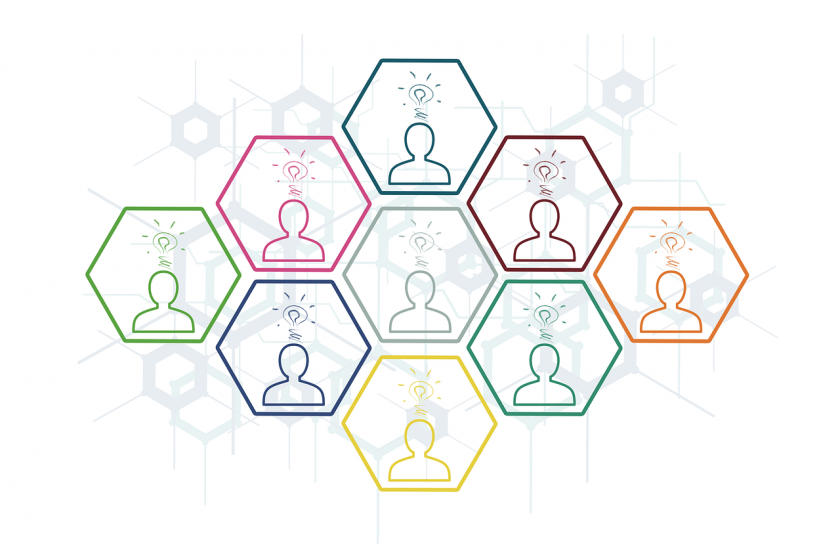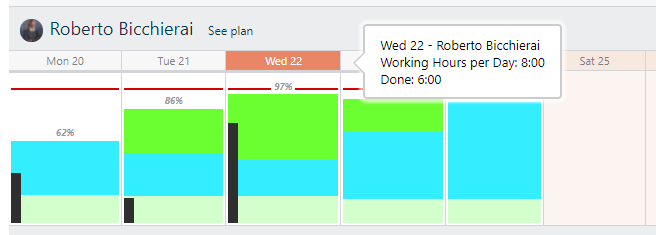Are you a project manager in a consulting company and would like to keep your company’s activities and projects under control with more order and efficiency? Do you perceive the need to unify business processes in order to make work less scattered?
In this article we will provide you with some tips for optimising project and resource management within your company.
CONTENT
- Foreword: the main needs of companies in consulting project management
- 1. Clients
- 1.1. Managing contact details and database of potential customers
- 1.2. Transparent information sharing
- 2. Collaborators
- 2.1. Advanced role management
- 2.2. Awareness in resource load management
- 2.3. Sharing tools
- 3. Costs
- 3.1. Project budget management system
- 3.2. Unified reporting of hours worked and additional expenses
- Twproject: a unifying and centralising tool for all
The consultancy sector is notoriously heterogeneous and it therefore seems difficult to identify general solutions that can meet the needs of managers in different companies.
Consulting companies in fact have customer service as their focus and therefore the projects within this field of work are very diverse, as are the customers they address.
Not producing goods as in the case of manufacturing companies, nor traditional services, the consulting world needs to manage projects and resources, whether internal or external, in parallel and with equal care.
Unlike other sectors, projects in consulting firms are generally not large in terms of phases and sub-phases, but rather are numerous and diverse.
The main requirement is therefore to keep track of a large amount of information in terms of projects and customers, and taming this large amount of data is a very challenging task.
Foreword: the main needs of companies in consulting project management
If, as we have seen, diversification and heterogeneity play a major role in the way of consultancy projects, it follows that the transmission and sharing of data must be handled with care.
The primary need of consultancy companies has to do with communication and is to share information with a large and internally diverse group of collaborators.
The second priority is to ensure that chaos does not prevail in business process analyses.

It is crucial for a consulting company to define and maintain the project’s purpose, or project scope, so as not to lose sight of the initially planned objectives and not to waste valuable resources.
Optimising management systems, perhaps by exploiting semi-automated processes, is one way to avoid losing valuable data when analysing results.
To sum up, efficient project management in business consulting occurs when:
- all the necessary information is accessible to all interested parties, everywhere and on different media;
- the company has unified management systems that channel the volume of data in an orderly manner.
Let us now look at how these requirements translate into the three management areas of consultancy firms, i.e. the relationship with clients (current and potential), the coordination and administration of employees and cost management.
1. Clients
We will start by analysing the problems related to the management of clients in a consulting firms as they are the very target of consultancy work.
Compared to other business sectors, where the customer is the end-user of a good or service, in the case of consulting companies one can say that customers are the main focus of projects.
The main goal of every consultant is customer retention, i.e. the ability to acquire and then keep new customers.
Finding the right strategies to put customer retention into practice is crucial for consulting companies, and consists of several steps that we will see below.
1.1. Managing contact details and database of potential customers
For a consultancy agency, when acquiring new customers, it is crucial to manage new contacts and potential customers efficiently.
Data la mGiven the amount of data and information related to this area, it is a good idea to set up an unambiguous method for master data management and make sure that everyone involved in this activity respects it.
It is still very wise to always mark down every single detail of newly acquired contacts, taking nothing for granted, as every little detail may come in handy in the future.
If we use tools specifically created for Customer Relationship Management (CRM), the presence of the different input fields will help us to remember how to structure the information acquired for each contact.
Twproject can also be used as a CRM, since an unlimited number of resources can be entered in its user management without a login (and thus not counted as licences). These resources can already be structured hierarchically and framed in working groups, departments, etc.
The advantage of using an all-round project management software to do this is that the activities that take place in the pre-sale phase are then directly transferred into the actual projects, when they start, and are therefore also accountable.
In addition, Twproject allows the management of pre-sale activities with its ToDo’s, which have scheduling, assignees, documentation sharing and time management.

1.2. Transparent information sharing
Once new customers have been acquired, the second management aspect comes into play, which is not always easy to handle, namely the transparent transmission of data on project performance.
In business consulting, there are several types of reports that are useful to share with clients.
If we equip ourselves with tools that autonomously create reports derived from the data collected over time, this will be a considerable time saver.
A tool such as Twproject, for example, not only allows for real-time monitoring of all kinds of information on expenses and costs, project status, etc., but also for sharing it in different ways.
Twproject allows customers to be assigned a supervisory role in projects, making them active participants in the development of activities, but also offers highly advanced reporting to share data and thus increase transparency to customers.
2. Collaborators
In consulting companies, the roles are not the traditional ones, external consultants are often used and different figures work on the various phases of a project.
Together with the remoteisation of work, the empowerment of employees becomes crucial. This happens the more precise tasks and defined roles are assigned.
Let us see in detail how to make the team of collaborators autonomous and satisfied.

2.1. Advanced role management
Defining the roles, responsibilities and permissions of each member of the project team is crucial for consulting companies.
The management tools used should also provide for different degrees of responsibility and different levels of interaction.
It can be very useful to make all team members aware of certain aspects of project execution, and yet it is important that operational permissions are well measured.
Flexibility in role management is crucial in the consulting industry, and Twproject offers truly advanced role and security management, customisable to each company and each ongoing project.
2.2. Awareness in resource load management
In addition to carefully structuring roles and permissions, it is important to carefully plan resource workload.
Resource allocation is a fundamental activity and if done with the right strategies can help save time and money.
Carefully managing the load of team operators is a delicate task for any project manager. All the more so if the operators are of a different nature and are divided between employees and collaborators, with the team often working remotely and heterogeneously.
Calibrating resource scheduling well, by estimating the hours of work effort divided over the main project activities, helps to gain more control over the time effectiveness of resources.
This activity is related to the calculation of hours worked. If in fact the chosen method of marking working time is reliable, then analysing the extrapolated data to plan future work is a good practice.
In Twproject, the resource management plan and the various worklog tools coexist and interact to enable a conscious and balanced load distribution.

2.3. Sharing tools
Finally, just as for clients, internal transparency in a consulting team is equally important.
If we use tools to centralise key information and share the scope of projects, the whole team will benefit.
Among the main internal sharing tools are the Gantt chart and shared calendars, all the more so if within a single instrument.
Twproject takes this a step further by offering the possibility of setting multiple calendars for flexible workers and thus enabling better control over the project resources of consulting firms.
3. Costs
The last crucial, and perhaps the most complex, aspect of consultancy project control is budget management and control.
Data from a variety of sources contribute to the entire financial statement of the projects, with a physiological divergence between estimated and actual values.
Vediamo quali accorgimenti mettere in atto per rendere la stima dei costi un lavoro soddisfacente, seppur naturalmente complesso.
3.1. Project budget management system
When projects are numerous and diverse, it is important that cost management is carried out efficiently and that budget control tools are in place.
Surely the best way to achieve this efficiency is to plan dates and deadlines in relation to project costs from the outset.
In fact, among the cornerstones of project scope management is cost control, which helps us prevent wastage of resources when timelines are unclear.
In the daily chaos of information from multiple sources, it is important to ensure that income and expenditure data do not stray too far from what was budgeted.
Unification of management systems is the key. Twproject is an example of how all costs can be kept under control on a single platform.
Among the various functions for aggregating financial data are the connection of hours worked and project costs, alerts indicating overruns of estimates, and the highly flexible budget that can be allocated not only to projects but also to individual resources.

3.2. Unified reporting of hours worked and additional expenses
Secondly, to better monitor project operating costs, when dealing with a large group of collaborators, it may be useful to unify the method of managing hourly costs and incidental expenses, such as travel, licences, etc.
In fact, all these items increase the costs on projects, but often different systems and tools are used to report on them, making the work of aggregating data complex.
On Twproject we find the case of a unified cost management tool, which greatly simplifies the method of recording and transferring financial data.
It is possible to assign a budget to both the project and the resource, so that all costs related to personal expenses are recorded quickly and easily. In addition to costs, Twproject also manages revenues and invoicing.

Twproject: a unifying and centralising tool for all
We have seen, when examining the main problems of consulting companies, that the main need is to centralise work and information.
All the solutions proposed here have the ultimate goal of increasing team productivity, but to be truly exploited by employees they must also be user-friendly.
Twproject ha il vantaggio di essere al contempo uno strumento completo e Twproject has the advantage of being both a comprehensive tool and potentially suitable for every need as it is extremely flexible, but also very easy to use.
The user-friendliness of Twproject has enabled us to find a perfect fit for the organisation of our projects, and even less experienced staff members have learnt to manage their project phases independently and effectively.

If you too are looking for such a tool, you can try Twproject free of charge for 15 days and start managing your projects and team in an optimised way.
Our support team will help you throughout the start-up phase and answer all doubts and requests.
As many consulting companies testify, Twproject is a unique and effective tool and offers the right solution for your team!




